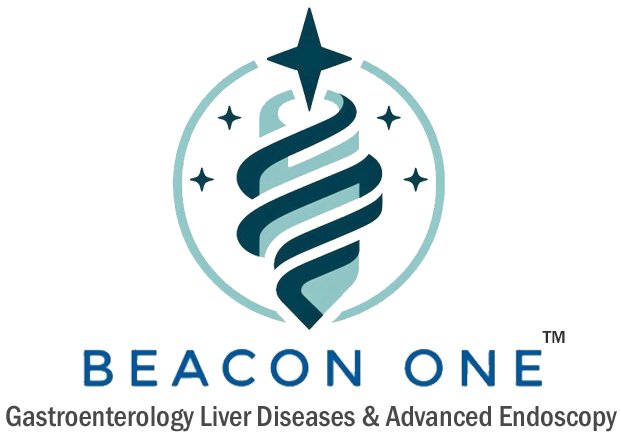Battling the Blaze Within: Understanding Acute Pancreatitis Treatment in Nagpur
Acute pancreatitis is a sudden and often severe inflammation of the pancreas, a vital organ located behind the stomach that produces digestive enzymes and hormones. This condition can cause intense pain and requires immediate medical attention. Understanding the intricacies of acute pancreatitis treatment is crucial for patients and their families facing this challenging diagnosis. When the pancreas becomes inflamed, its own digestive enzymes can begin to attack the organ itself, leading to significant pain and potential complications.
The Sudden Onset: Symptoms and Causes of Acute Pancreatitis
The hallmark symptom of acute pancreatitis is sudden, severe pain in the upper abdomen, which may radiate to the back. This pain can be constant and debilitating, often worsening after eating. Other common symptoms include nausea, vomiting, fever, rapid pulse, and a swollen and tender abdomen.
Acute pancreatitis is most commonly triggered by:
- Gallstones: These small, hardened deposits can block the common bile duct, preventing pancreatic enzymes from flowing into the small intestine.
- Heavy Alcohol Use: Excessive alcohol consumption is a significant risk factor.
- Other Causes: Less common causes include certain medications, high triglyceride levels, high calcium levels, infections, abdominal injury, and certain medical procedures like Endoscopy (specifically, ERCP, though this is a rare complication).
Identifying the underlying cause is a critical step in guiding effective acute pancreatitis treatment.
Diagnosing the Inflammation: Medical Evaluation and Investigation
Diagnosing acute pancreatitis typically involves a combination of evaluating clinical symptoms, performing a physical examination, and conducting laboratory tests. Blood tests are essential to measure levels of pancreatic enzymes like amylase and lipase, which are often significantly elevated in acute pancreatitis.
Imaging tests also play a crucial role in confirming the diagnosis, assessing the severity, and identifying the cause:
- Ultrasound: Can help detect gallstones, a common culprit.
- CT Scan or MRI: Provide detailed images of the pancreas and surrounding structures, revealing the extent of inflammation and any complications.
- Endoscopic Ultrasound (EUS): An endoscopy procedure that uses ultrasound to visualize the pancreas and bile ducts in detail.
- ERCP (Endoscopic Retrograde Cholangiopancreatography): A specialized endoscopy procedure that can visualize and treat problems in the bile and pancreatic ducts, particularly useful if gallstones are suspected as the cause. This procedure is performed by an Endoscopy Specialist.
The timely and accurate diagnosis by experienced medical professionals, including a Gastroenterologist, is paramount for initiating appropriate acute pancreatitis treatment.
Comprehensive Acute Pancreatitis Treatment Strategies
Acute pancreatitis treatment primarily focuses on supportive care to allow the pancreas to heal, managing pain, and addressing the underlying cause. Hospitalization is usually required, especially for moderate to severe cases.
Key components of acute pancreatitis treatment include:
Fluid Resuscitation: Administering intravenous (IV) fluids is critical to prevent dehydration and maintain adequate blood flow to the pancreas and other organs. This is a cornerstone of early management.
Pain Management: Acute pancreatitis can cause severe pain, requiring strong analgesics, often administered intravenously.
Nutritional Support: In the initial stages, patients are typically advised not to eat or drink by mouth to give the pancreas a rest. Nutritional support may be provided through IV fluids or, in more severe cases, through a feeding tube (enteral nutrition), which is generally preferred over parenteral nutrition.
Treating the Underlying Cause:
- If gallstones are the cause, procedures like Endoscopy (specifically ERCP) may be performed by an Endoscopy Specialist to remove the stones obstructing the bile or pancreatic ducts. Surgical removal of the gallbladder (cholecystectomy) is often recommended after recovery to prevent recurrence.
- If alcohol is the cause, complete cessation of alcohol consumption is essential.
- If medications are the cause, they will be discontinued.
- Other causes, such as high triglycerides, will also be managed.
Monitoring for and Managing Complications: Acute pancreatitis can lead to complications such as infection of the damaged pancreatic tissue (infected necrosis), fluid collections around the pancreas (pseudocysts), kidney failure, or respiratory problems. Close monitoring and prompt management of these complications are vital. This may involve antibiotics, drainage procedures (often guided by imaging or endoscopy), or surgery in severe cases.
The Role of Specialists in Acute Pancreatitis Care
Managing acute pancreatitis involves a multidisciplinary approach with several specialists playing key roles. A Gastroenterologist is the primary specialist involved in the diagnosis and medical management of acute pancreatitis. They oversee supportive care, pain management, and the investigation of the cause. If the pancreatitis is linked to gallstones or underlying liver diseases, a Hepatologist may also be consulted. The expertise of an Endoscopy Specialist is crucial when diagnostic or therapeutic endoscopy (like ERCP or EUS) is required.
While the immediate management of acute pancreatitis is a medical emergency requiring hospitalization, access to experienced Gastroenterologists, Hepatologists, and Endoscopy Specialists is crucial for accurate diagnosis, appropriate treatment, and long-term management to prevent recurrence.
Recovery and Long-Term Management
Recovery from acute pancreatitis varies depending on the severity. Mild cases may resolve within a few days with supportive care, while severe cases can require weeks or even months of hospitalization and intensive care. After discharge, lifestyle modifications, such as avoiding alcohol and maintaining a healthy diet, are often necessary to prevent future episodes. Your Gastroenterologist will provide guidance on diet and monitor for any long-term complications.
Effective acute pancreatitis treatment relies on prompt medical attention, accurate diagnosis, comprehensive supportive care, and addressing the underlying cause. By understanding the condition and seeking care from experienced specialists, patients can navigate the challenges of acute pancreatitis and work towards recovery and preventing future episodes.

